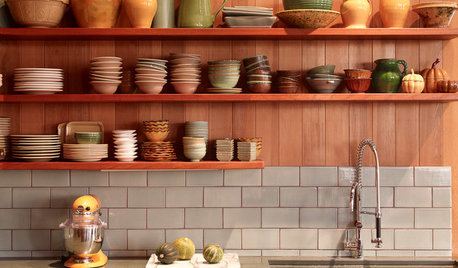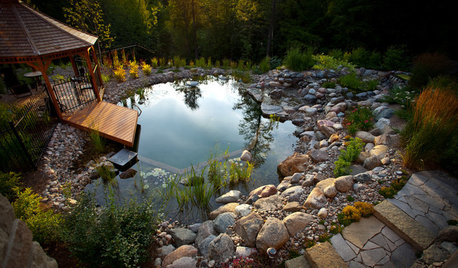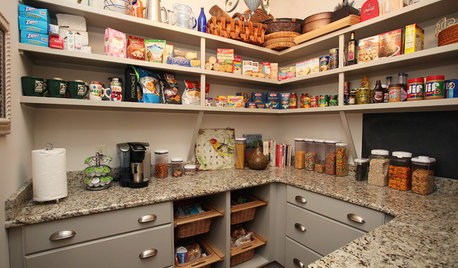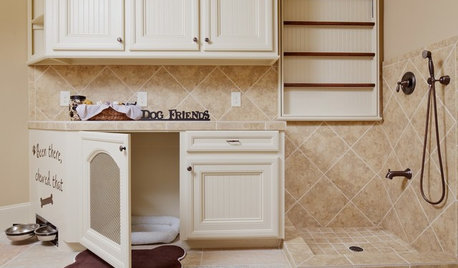sacrificing the environment to stay sanitised
Susan
11 years ago
Related Stories

TRADITIONAL HOMESHouzz Tour: An Island Cottage Built of Stone and Steel
A home in Scotland’s Inner Hebrides blends original materials with a new structure to stay in tune with its environment
Full Story
UNIVERSAL DESIGN11 Ways to Age-Proof Your Bathroom
Learn how to create a safe and accessible bathroom without sacrificing style
Full Story
KITCHEN CABINETS9 Ways to Save Money on Kitchen Cabinets
Hold on to more dough without sacrificing style with these cost-saving tips
Full Story
LANDSCAPE DESIGNNatural Swimming Pools: More Beauty, No Chemicals
Keep your skin and the environment healthy with a pool that cleans itself, naturally
Full Story
LIFEHow to Prepare for and Live With a Power Outage
When electricity loss puts food, water and heat in jeopardy, don't be in the dark about how to stay as safe and comfortable as possible
Full Story
PETSThe Crate Conundrum: A Safe Place for Your Pooch
Get ideas for a comfy den for your dog that works well with your space too
Full Story
ARCHITECTUREDesign Workshop: The Lowdown on Colossal Doors
Want to erase the boundary to the outdoors? Here’s what to know about materials, cost, energy efficiency and more
Full Story
KITCHEN DESIGNKitchen of the Week: Ultra-White Cabinetry in Calgary
Owners turned to a piano finisher for the gloss on this extra-white kitchen
Full Story
HOUSEKEEPINGTackle Big Messes Better With a Sparkling-Clean Dishwasher
You might think it’s self-cleaning, but your dishwasher needs regular upkeep to keep it working hard for you
Full Story
LIFERetirement Reinvention: Boomers Plot Their Next Big Move
Choosing a place to settle in for the golden years? You're not alone. Where boomers are going and what it might look like
Full Story







Annie Deighnaugh
doc8404
Related Professionals
North Versailles Kitchen & Bathroom Designers · Salmon Creek Kitchen & Bathroom Designers · St. Louis Kitchen & Bathroom Designers · Deerfield Beach Kitchen & Bathroom Remodelers · Lisle Kitchen & Bathroom Remodelers · Pico Rivera Kitchen & Bathroom Remodelers · Port Arthur Kitchen & Bathroom Remodelers · Turlock Kitchen & Bathroom Remodelers · Winchester Kitchen & Bathroom Remodelers · Mount Prospect Cabinets & Cabinetry · Foster City Tile and Stone Contractors · Rancho Cordova Tile and Stone Contractors · Boise Design-Build Firms · Lake Butler Design-Build Firms · Mililani Town Design-Build FirmsAnnie Deighnaugh
brickeyee
kateskouros
roarah
bmorepanic
lazy_gardens
williamsem
MizLizzie
oldhousegal
crl_
lalithar
rmtdoug
deedles
palimpsest
User
pricklypearcactus
SusanOriginal Author
shannonaz
a2gemini
User
laughablemoments
williamsem
CEFreeman
aliris19
debrak_2008
User
kai615
Circus Peanut